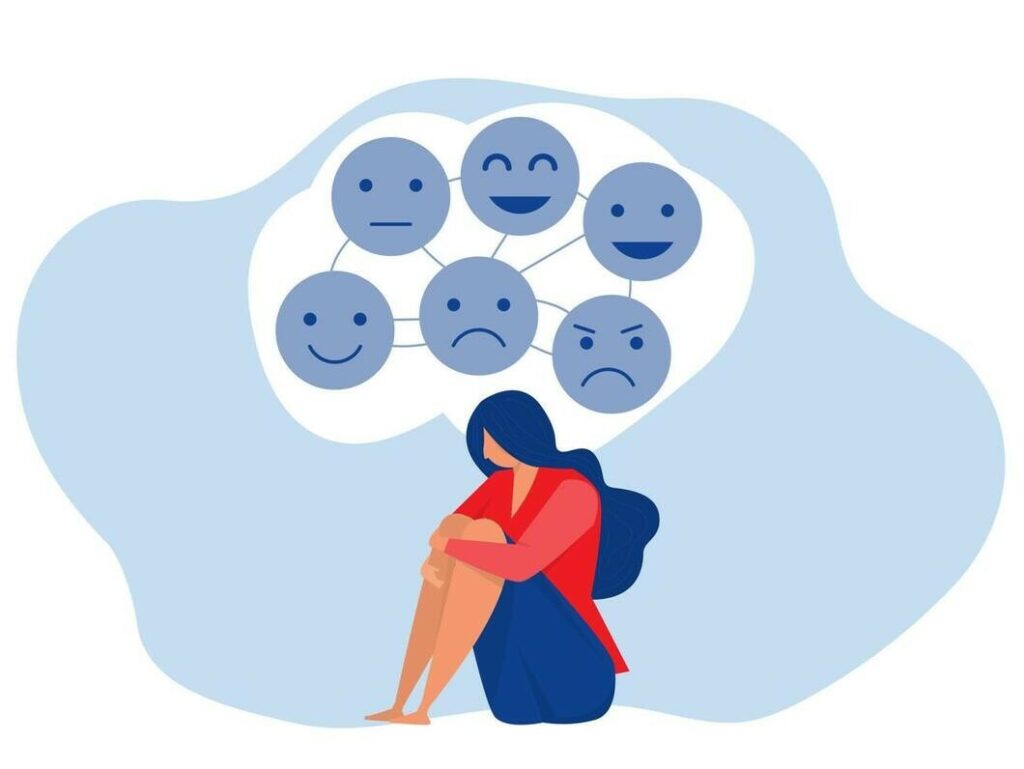Are you tired of living with the ups and downs that come with bipolar disorder? Look no further than IPSRT. This innovative therapy is highly effective in managing symptoms of bipolar disorder, helping patients regain control over their emotions and achieve greater stability in their daily lives. In this blog post, we’ll explore the ins and outs of IPSRT, including what it is, how it works, and why it may be a great choice for those struggling with bipolar disorder.
Contents
What is IPSRT?

IPSRT is an acronym for Interpersonal and Social Rhythm Therapy. It is a type of cognitive-behavioral therapy that focuses on helping people with bipolar disorder to regulate their daily routines and social rhythms.
People with bipolar disorder often have problems with their sleep patterns, which can trigger manic or depressive episodes. IPSRT helps to stabilize these patterns by teaching people how to recognize and cope with their symptoms. It also encourages them to stick to a routine, including regular mealtimes, exercise, and sleep habits.
The origin of this therapy is based on the idea that interpersonal and social rhythm stability, or the consistency of a person’s daily activities, can have a positive effect on managing bipolar disorder. Therapists use IPSRT to help clients identify and manage stressors in their environment, as well as any disturbances in their social relationships that could be contributing to episodes.
How Does IPSRT Help with Bipolar Disorder?
IPSRT is a type of cognitive-behavioral therapy that helps people with bipolar disorder manage their symptoms and improve their quality of life. The goal of IPSRT is to help people with bipolar disorder stabilize their moods, manage their medications, and prevent or reduce the frequency and severity of manic and depressive episodes.
The working of this therapy also focuses on helping people with bipolar disorder to identify and address the environmental triggers that can cause or worsen their symptoms. This includes things like stress, lack of sleep, major life events, drug or alcohol use, or changes in medication or dosages. By understanding these triggers and learning ways to avoid them, people with bipolar disorder can better manage their mental health.
IPSRT also includes techniques to help people with bipolar disorder develop healthy habits such as regular sleep patterns, stress management skills, and healthy lifestyle choices. Additionally, the therapist will work with the person to identify their strengths and develop positive coping strategies for managing difficult emotions or situations.
Techniques of IPSRT for Bipolar Disorder

Many different techniques can be used in IPSRT for bipolar disorder, and it is important to find the ones that work best for each individual. Some common techniques include:
Psychoeducation
One of the most common techniques used in IPSRT is psychoeducation. This involves educating the patient about bipolar disorder, its symptoms, and how to best manage them. This can involve talking through different ideas for managing moods, as well as providing resources for additional help when needed.
It also includes providing information about the importance of sleep, diet, exercise, and other lifestyle factors in managing bipolar disorder.
Interpersonal Therapy
Interpersonal therapy (IPT) focuses on improving relationships with family members, friends, and other important people in the patient’s life. This can include improving communication skills, increasing assertiveness, and learning how to better express emotions.
It also involves recognizing patterns of behavior that may be contributing to negative feelings and finding ways to change those patterns. Finally, IPT helps patients recognize and manage triggers that may lead to episodes of depression or mania.
Stress Reduction Strategies
Stress can be a major trigger for bipolar disorder, so it is important to learn effective stress reduction strategies. This can involve relaxation techniques, such as deep breathing and progressive muscle relaxation, as well as physical activity and mindfulness exercises. Additionally, it is important to find healthy ways to manage stress, such as talking to friends or a therapist.
It is also important for patients to recognize the warning signs of an impending episode and learn how to respond to prevent it from happening.
Social Rhythm Metric
This technique focuses on re-establishing and maintaining a regular daily routine. This can include setting daily times for meals, sleep, exercise, and social activities. It is also important to maintain consistency in these routines to help regulate moods.
The Social Rhythm Metric (SRM) is an objective measure of the stability of a person’s daily routines and can be used to track progress over time.
Ocial Zeitgeber Theory
Another technique used in IPSRT is the social zeitgeber theory. This involves identifying and manipulating environmental factors that can contribute to episodes of depression or mania. It also includes recognizing social cues, such as time of day, seasons, holidays, and other events that may trigger an episode.
Finally, it helps patients recognize their internal triggers, such as changes in mood or levels of energy, and how to manage them to avoid episodes.
By utilizing these techniques, IPSRT can be an effective way to manage bipolar disorder and improve the quality of life for those with the condition.
Benefits of IPSRT for Bipolar Disorder

There are many potential benefits of IPSRT for bipolar disorder. This treatment can help to:
Stabilize Moods
One of the most common benefits of IPSRT is its ability to help stabilize moods. Through a combination of lifestyle and medication management, IPSRT can assist people living with bipolar disorder in understanding the early warning signs of episodes and how to best manage them. This treatment also focuses on sleep hygiene, which can play an important role in regulating moods.
Strengthen Coping Skills
IPSRT also provides patients with the skills and tools needed to improve their ability to cope with stressors. This includes teaching effective problem-solving methods that can be used to address difficult situations as they arise in daily life. Additionally, IPSRT can help people identify how certain behaviors, such as substance use or spending too much time on screens, can exacerbate symptoms and suggest healthier alternatives.
Promote Well-Being
IPSRT also promotes overall well-being by encouraging self-care practices such as relaxation techniques, mindful meditation, and journaling. This treatment helps people to develop a holistic understanding of their emotional experience and provides them with the skills to better manage it.
Limitations of IPSRT for Bipolar Disorder

Yes, there are some limitations of IPSRT for bipolar disorder. These include:
- Making the person’s mood swings worse: Sometimes talking about difficult experiences can lead to an increase in symptoms.
- Increased time commitment: IPSRT is a long-term treatment that requires significant time and effort from the patient, which can be difficult for some people.
- Costs of medications and therapy sessions: As this type of treatment often involves both medication management and regular therapy sessions, it may be difficult for some people to access this treatment due to associated costs.
Despite these limitations, the potential benefits of IPSRT for those living with bipolar disorder may outweigh the drawbacks.
Conclusion
Interpersonal and Social Rhythm Therapy (IPSRT) is an effective approach to managing bipolar disorder. It helps clients develop healthy patterns of daily living, identify individual triggers to mood episodes, and manage interpersonal relationships. With the right support system in place, IPSRT can be an invaluable tool for those suffering from bipolar disorder as it provides meaningful strategies to help them stay on track with their treatment plan and lead a more balanced life.
For more information, please contact MantraCare. Bipolar disorder is a mental illness characterized by extreme shifts in mood, energy, and activity levels. If you have any queries regarding Online Bipolar Disorder Counseling experienced therapists at MantraCare can help: Book a trial Bipolar Disorder therapy session


